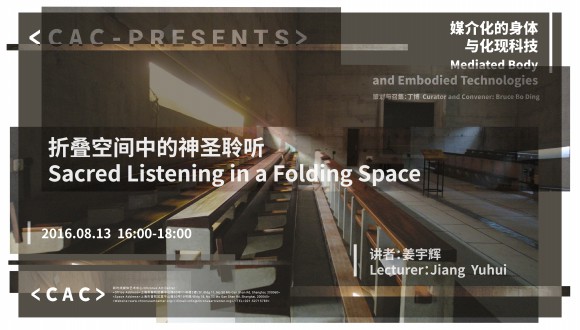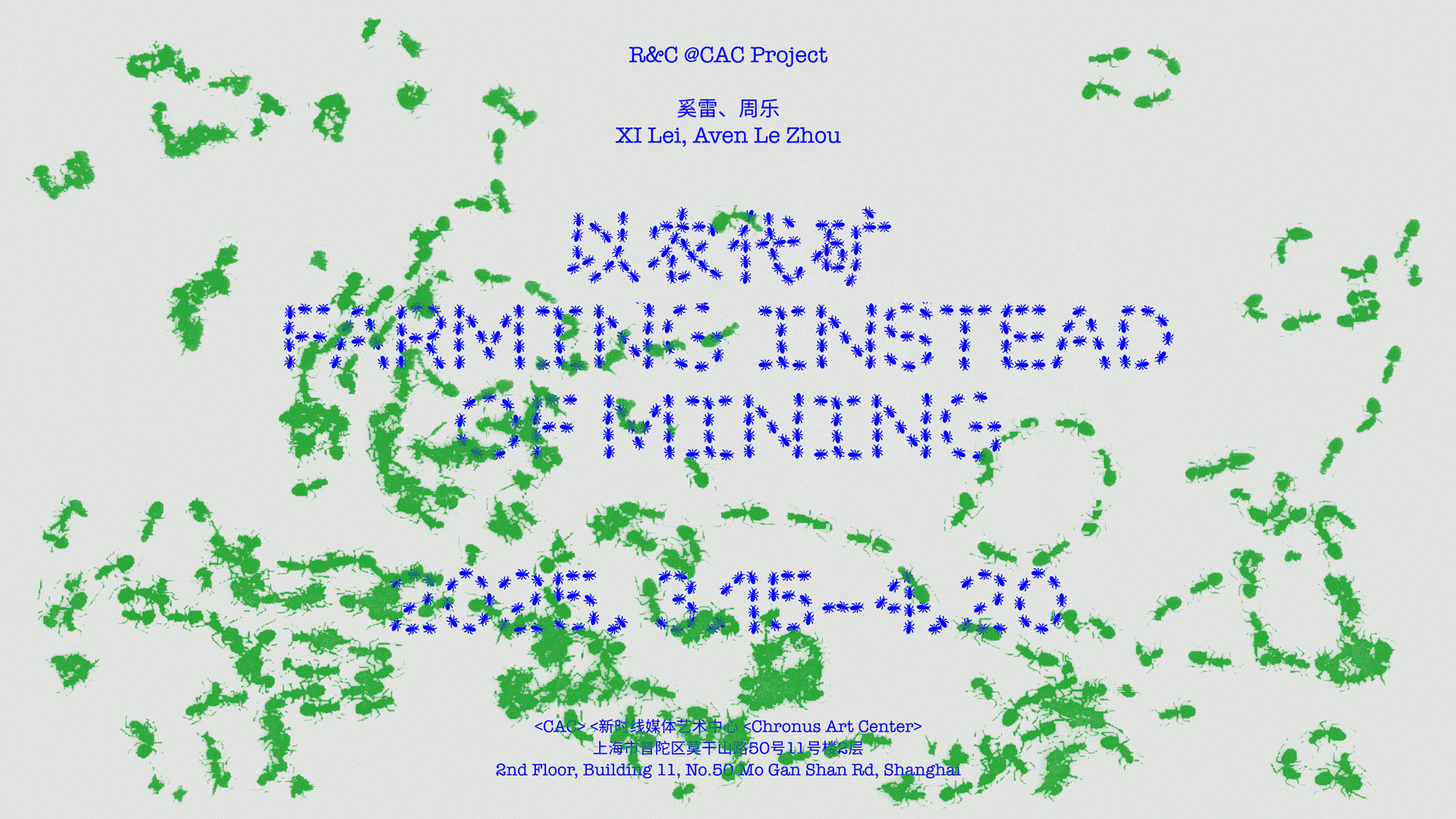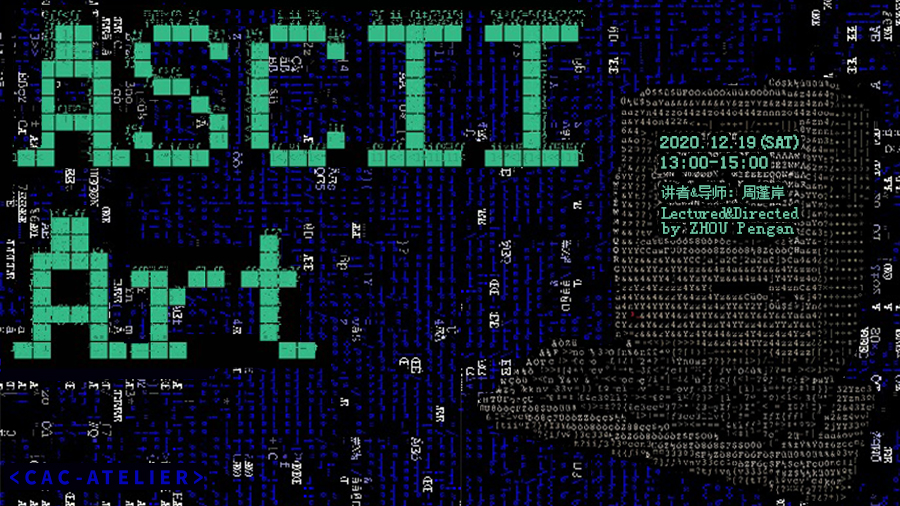Lecturer: Yuhui JIANG
Time: 2016.08.13 16:00-18:00
Language: Chinese
Organizer: Chronus Art Center (Building 18, No 50 Moganshan Road, Shanghai)
About The Lecture
The relationship between space and perception has been a core subject of contemporary philosophy of space. At the beginning, we put focus on the concept of ‘touch’ and carry out a reflective (or even critical in a sense) reading of the latest theoretical contributions in contemporary architecture theory and aesthetics of space in general. One of the challenging arguments we’d like to put forward is: to fully comprehend the affective relationship between space and dweller, aural dimension (sound & listening) would be no less important than the other dimensions of spatial perception (esp. optical and haptic). Listening could lead us into the ‘depth’ of space and unveil those most exuberant aspects of spatial affection: swarming fragments, delicate rhythms, overlapped dimensions, and so on. If there is a Poetry of Space, it should be composed with the intense joy (jouissance) of listening (which could not be restricted within the framework of some kind of ‘phenomenology of listening’ (Don Ihde).
Following this inspiration, we intend to enlarge upon the basic ideas and do some serious ‘field’ research. Among all kinds of spaces, the sacred places (church, temple, cloister, monastery …) seem to be most attracting. When you enter a place such as the Convent De La Tourette (by Le Corbusier), the suffusion of dim light, the murmuring of prayer, the finely broken beats of footsteps, and the ultimate tranquility of meditation will instantly let you immersed into the ‘atmosphere’ of the whole place. How can we decrypt the mystery? Maybe we should concentrate on those virtual aspects of spatial affections which have always been implicit in daily perceptions. Deleuze has talked about the distinction of inner/outer space in Le Pli, but the inner shouldn’t be simply equated with the ‘inner realm’ of consciousness or soul. It refers to the hidden, implicit (‘invisible’) dimensions of space which need to be rendered ‘visible’.
About The Lecturer
Yuhui Jiang graduated with a master degree from École normale supérieure before completing his PhD in Fudan University. He is currently working in Department of Philosophy in East China Normal University. He is the author of Deleuze's Aesthetics of Body, Truth and Painting: Merleau Ponty and Chinese Landscape Paintings. He is also the Chinese translator of Proust et les signes and A Thousand Plateaus. His research is now focusing on the exploration of the possible connections between contemporary French theory and Avant-garde art, especially around the issues of the sound and listening.
About Mediated Body and Embodied Technologies
“Mediated Body and Embodied Technologies (M.B.E.T.)” is an open-source practice repository and research process addressing the various mechanisms and possibilities of human future mediated by technologies. Started by reflecting and speculating on the relation between the enacted and the represented as well as the virtual and the real (a contingent production rather than a natural inevitability), M.B.E.T. brings back embodiment into the picture to investigate if/how the forms/media of embodiment are relevant in the production of identity and subjectivity as well as the circulation and communication of information. In the spirit of open source, it tries to create a fluid and evolving space in which practitioners and researchers from different areas can come together and contribute in this creative exploration. Mediated Body and Embodied Technologies(M.B.E.T.) is curated by Bruce Bo Ding.





